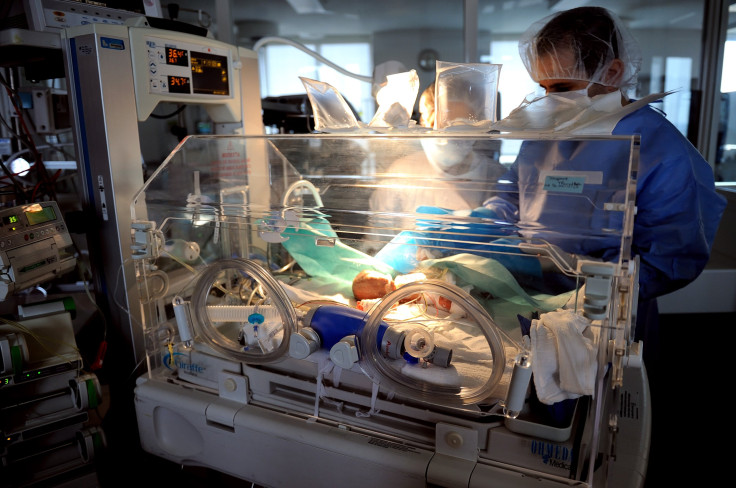2-Month-Old Who Felt ‘Pain’ When ‘Handled’ To Be Removed From Life-Sustaining Treatment

A British high court judge ruled Wednesday that a seriously ill two-month-old boy, who felt pain when held, should be allowed to die, despite protests from the infant’s mother.
The case was being heard in a private hearing in the Family Division of the High Court in London. “I wholly understand the mother’s desire to prolong life for as long as possible,” the judge said, Metro reported. “But her wishes have to be viewed against the medical evidence. I entirely understand if they disagree with my decision.”
The baby in question weighed less than four pounds when born in May and had been in a hospital ever since. He suffered from serious heart and neurological abnormalities. The name of the baby as well as the National Health Service trust which proposed the infant’s withdrawal of treatment, has been withheld on orders of the court.
Doctors who treated the child, said the baby’s condition was so severe that he felt “discomfort” and “what is perceived to be pain.” Furthermore, the boy “didn’t like being handled” and “grimaced when she picked him up,” one medical specialist said. Hence, every time the boy had to be handled by the doctors, he had to be sedated to “relieve agitation.”
Despite the mother of the child, who has learning difficulties, appealing to the judge to let her son to continue to receive life-sustaining medication — a plea supported by a man who appeared to be the infant’s father — the judge decided to side with Barrister Claire Watson, who was a representative of the hospital owners.
Watson said doctors at the hospital confirmed the fact that they could not see any possibility for improvement in the infant’s condition even if he continued to receive treatment. There was a high possibility the infant would be deceased before Christmas, regardless of the medication he receives, the specialists said.
With that advice before the court, the judge was requested by social services officials to allow the hospital to discharge the ailing infant and move him to a children’s facility where he would continue to receive palliative care.
Before giving his verdict, the judge said while he had taken note of the mother’s wishes, he had to do what was in the best interest of the baby and while decisions such as these were very difficult to take, it had to be done regardless.
“Ultimately the balance is quality of life against length of life,” he said. “Life is precious. It is an extremely difficult balance to judge.”
The care of the child was placed in the council’s hands due to the mother’s inability to provide for his needs. It is unclear if that detail factored into the judge’s decision.
Two of the most infamous cases in London, where the judge sided with medical experts and social services over the parents' wish and allowed the infant to be taken off life-supporting treatment, happened in recent years — Charlie Gard in 2017 and Alfie Evans in 2018.
© Copyright IBTimes 2024. All rights reserved.






















